'I never thought it would happen to me': Teenage girl who was groomed online at 13
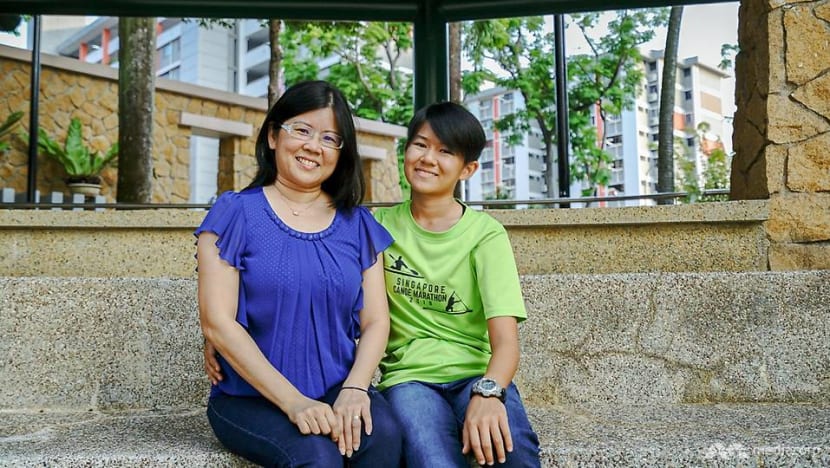
Parenting coach Vivian Kwek never thought her daughter Celestine Tan would fall prey to an online groomer, until she read the messages on her phone. (Photo: Rachel Phua)
SINGAPORE: It began innocently with comments such as: “You can always tell me anything if it helps ok."
Then, beguilingly: “You are like me and I know you would never mean to hurt upset anyone unless they upset you."
But then things grew more sinister. “(Are you getting worried) about my (private) detective and how close he/she (???) is to finding where you live. We already know where you kayak … lol," a message said about four weeks into their conversation.
Celestine Tan was on her phone constantly for six weeks between December 2017 and February 2018, she remembered. She had been chatting with people she believed to be a woman and her husband from the UK, although their identities were never confirmed.
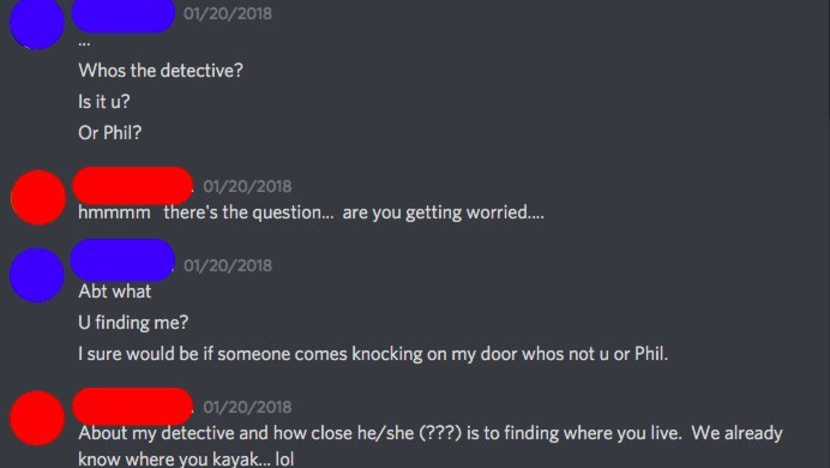
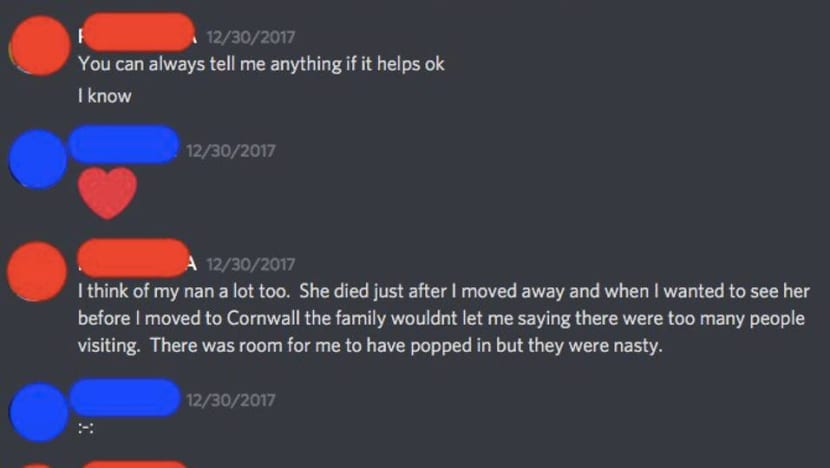
They had found each other through the video game MineCraft. Celestine, now 15, had logged on to one of the game’s many private servers - where smaller groups of players gather - at the suggestion of a friend. When she was online, she would not usually activate her online chat function, but joining the group required her to.
A woman who called herself Carolana started talking to Celestine on the public chat as well as through private messages. Celestine cannot remember what they spoke about at first. But then the woman suggested they move their conversation onto Discord, a chat service app popular among gamers, so that they could message using phones.
The back and forth was constant, said Celestine. The home-schooled teenager thought she had found a new best friend who understood her. It was at a point in her life when her mother was busy with work, and she felt she was not connecting with her friends.
She never saw anything suspicious about the budding online relationship, since they did video calls too. Celestine saw that Carolana was an elderly woman who had difficulty walking. At least, that was how she looked to her.
Her mother, Mdm Vivian Kwek, said the woman looked like “an oversized man with a wig”.
By week two of their exchange on Discord, Celestine shared personal information - her real name, age, a photo of her family and that she kayaked at MacRitchie Reservoir - to Carolana.
At times a man, whom Carolana said was her husband called Phil, would appear in the video calls or message her using Carolana’s account as well. The woman suggested that both she and Phil could fly to Singapore one day to meet up.
Other messages had a sexual tone. For instance, the woman brought up an idea that Phil was fine if Carolana spent the night with a male friend.
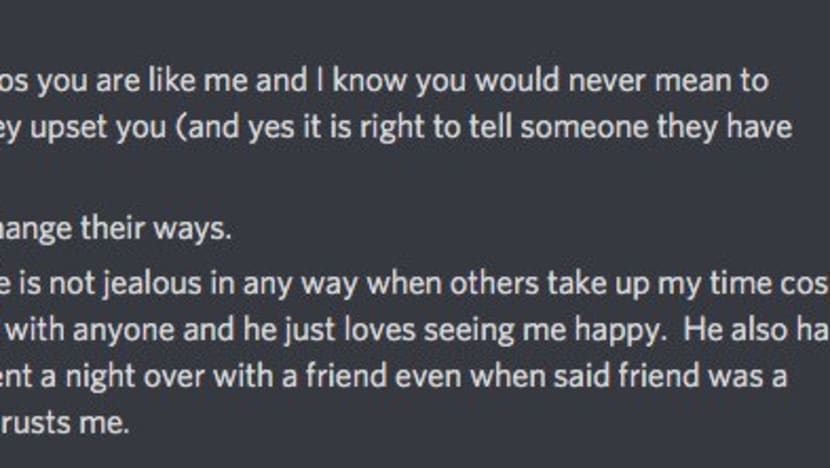
READ: Singapore teachers more concerned about cyberbullying than parents, Google survey shows
Mdm Kwek was aghast when she found out what was happening in her daughter’s life.
“It could happen to anyone,” Mdm Kwek said, which is why she has chosen to share her family’s experience of encountering an online predator. She said that she hopes her story will help other parents protect their children from similarly vulnerable situations.
She had came home that day - Feb 6, 2018 - from an Internet safety workshop held by Google. Wanting to test some of the tips she picked up from the session, she asked her daughter if she could look through her phone.
“I’d rather you didn’t,” her daughter replied. Mdm Kwek, 47, insisted. As she scrolled through Celestine’s WhatsApp messages, an icon that looked like a blue game console popped up. It disappeared before she could tap on it.
Puzzled, Mdm Kwek started searching for it. She found it in one of the phone’s folders named “Unused”.
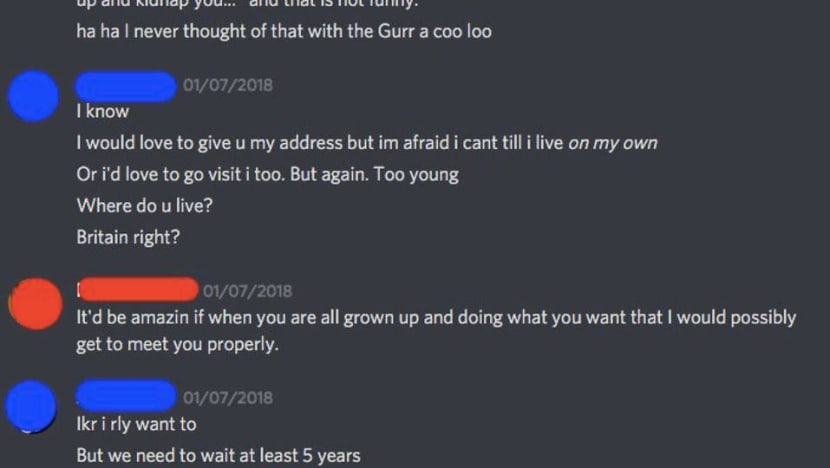
Over the next 14 hours, Mdm Kwek scrutinised each one of the messages, horrified at what she found.
As a parenting coach who had written about child safety, she knew quickly what had happened - her daughter was talking to an online groomer.
READ: Commentary: Should you install a tracking app on your kids' phones?
WHAT IS ONLINE GROOMING
Grooming is the act of building up a trusting and emotional relationship with a minor, usually with the purpose of sexual exploitation, gratification or abuse, said TOUCH Cyber Wellness’s senior coach Joanne Wong.
Such grooming can take place through an online platform, such as social media, messaging or gaming platforms.
The organisation has seen few counselling cases related to online sexual grooming, and there are no official statistics in Singapore on the number of child sexual abuse cases involving digital communication.
But a 2018 report by digital education think tank DQ Institute found that 54 per cent of Singapore children aged between eight and 12 are exposed to at least one cyber-risk, which includes cyberbullying, video game addiction, offline meetings and online sexual behaviour.
Among those who were exposed to these risks, 16 per cent have been involved in online sexual behaviours such as having searched for, and/or visited websites with sexual content, and/or having had sexual conversations online with strangers.
More than 3,600 children in Singapore aged between eight and 12 were polled.
Identifying an online sexual groomer is often hard, said Ms Wong, as they could be anyone: Male, female, teenagers or seniors. They are present on any online platforms - social media platforms, forums, and online games with in-game chat functions.
She said that though youths often know the possible risks of interacting with strangers online, they tend to be lulled by a false sense of security behind the screen.
“Groomers use manipulation tactics, such as using flattery or appealing to the youth’s sense of empathy, to gain their victims’ trust,” she said.
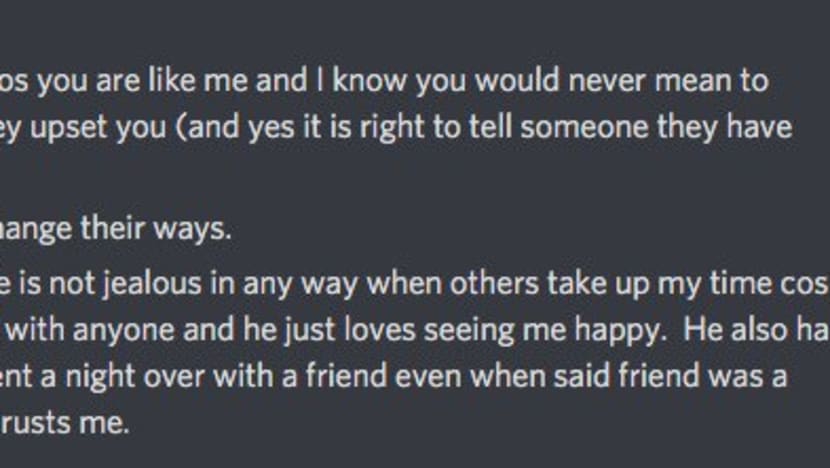
For anyone who thinks they are being sexually groomed online, she said that they should cease all communication with the person, take note of the groomer’s identity or username and take a screenshot before blocking him or her.
Report the user on the platform used for communication, and seek a trusted adult’s help.
Mdm Kwek herself picked out the tactics Carolana had used to groom her daughter, from trying to establish trust with her child by pointing out how alike they were, to fishing for personal data by creating false intimacy. At one point, Carolana even tried to ask Celestine for her home address so that she could send her gifts.
“ABSOLUTE SHOCK AND DISBELIEF”
After discovering the danger her daughter had be put in, Mdm Kwek put up a blog post about what had gone down and shared it on her Facebook page, hoping that others would learn from the lesson.
There was no need to report it to the police, she said, as fortunately, the relationship was not yet deep enough to incentivise the groomers to come to Singapore to meet her daughter.
Undoubtedly, she was angry. At the groomer and her daughter, at first, but also at herself. As someone who helps other parents understand their children, she had failed to discover her blind spot.
“I wasn’t there for her,” said Mdm Kwek. She resolved then to spend more quality time with each of her three children.
On her part, Celestine never thought she would be groomed online. Her mum had drummed into her and her siblings about being careful online. They had to get verbal permission to download any apps, and they were banned from entering online chats groups.
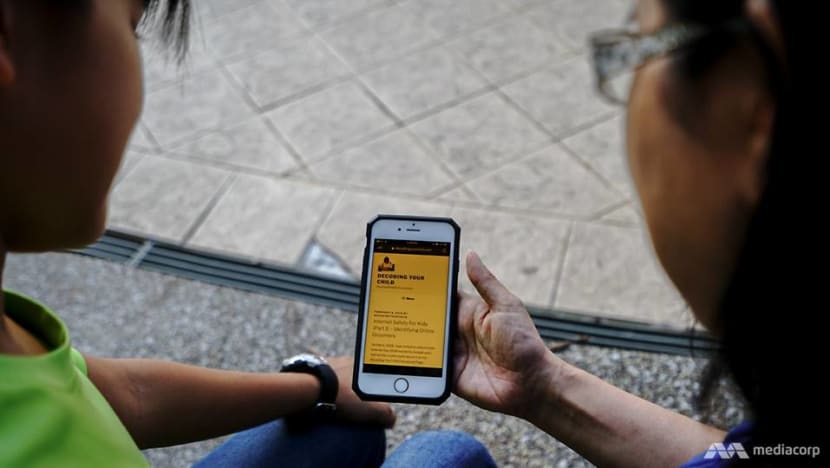
Lesson learnt, she said. Celestine does not go onto online forums, except for one on an online education website called the Art of Problem Solving to discuss “nerdy” maths problems. Even then, she makes sure not to share any personal information.
Mdm Kwek has since enabled the kids mode function on each of her children’s phone, which lets her and her husband control the apps they download.
It does not bother Celestine. Her mum resolved to spend more quality time with her and her siblings. “Monthly dates” became a thing. She has learnt to listen to the adults in the room.
“It was a blessing in disguise,” she said.














